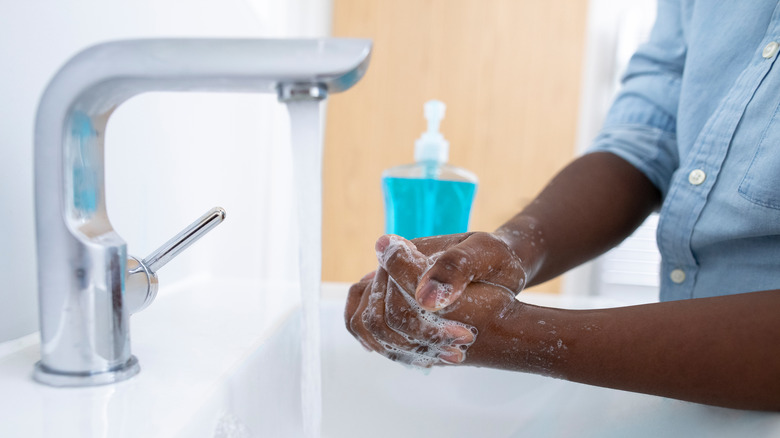What You Need To Know About Recent Stomach Bug Outbreaks Across The US
The norovirus is the number one cause of diarrhea and vomiting symptoms from stomach flu infection, reports the U.S. Centers for Disease Control and Prevention (CDC). Responsible for over 2 million doctor visits per year, young children and the elderly are among those most likely to be in need of medical attention due to infection.
Common symptoms of norovirus include fever, stomach pain, muscle pain, watery stool, nausea, and vomiting, according to Mayo Clinic. Symptoms can come on quickly and often begin within one to two days following exposure, usually lasting for up to three days.
While norovirus outbreaks are not uncommon, the number of annual outbreaks in the U.S. averages around 2,500, reports the CDC. The months of November through April are prime time for norovirus outbreaks across the United States. However, experts report that stomach flu outbreaks have been on the rise since August of 2021, with numbers continuing to spike weekly through early January 2022 (via NBC News). During this window, the number of outbreaks rose to 448 from the previous year's count of 78. In light of declining numbers of COVID-19 cases across the country, experts believe the lifting of pandemic restrictions may be playing a role in these widespread outbreaks.
How to reduce your chances of contracting the norovirus
As reported by NBC News, data obtained from 12 states including Massachusetts, Michigan, Minnesota, Nebraska, New Mexico, Ohio, Oregon, South Carolina, Tennessee, Virginia, Wisconsin, and Wyoming reveals that the number of outbreaks per week is more than five times higher than at the start of January — going from 10 outbreaks each week to over 50 per week.
The norovirus is highly contagious and transmission can occur through the touching of contaminated surfaces, by consuming contaminated food or drink, or from close contact with an infected individual, particularly through vomit or stool particles (via Mayo Clinic).
To reduce the chances of norovirus infection during social gatherings, experts suggest washing hands regularly with warm soap and water for no less than 20 seconds, particularly when handling food or baby diapers. In addition, remember to routinely disinfect and sanitize any commonly touched surfaces.


